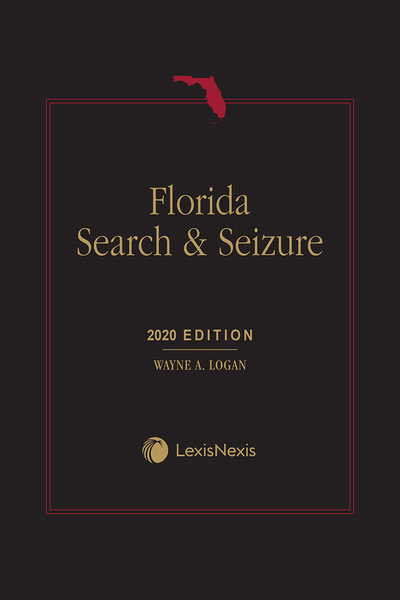Professor Wayne Logan Publishes Florida Search & Seizure

Tallahassee—Wayne A. Logan, the Gary & Sallyn Pajcic Professor of Law at FSU, has a new book available for preorder. Florida Search & Seizure is the first-ever treatise dedicated to Florida search and seizure law and provides a comprehensive, up-to-date examination of Florida and applicable federal law on search and seizure issues. Topics addressed in the 34-chapter volume include the exclusionary rule and its exceptions, probable cause and reasonable suspicion, search warrants, warrantless searches, motor vehicle stops, and suppression motions and hearings. The book covers decisions of the U.S. Supreme Court, Florida appellate courts, the Eleventh Circuit Court of Appeals and Florida federal district courts. State and federal statutes and rules also are noted and discussed.
Professor Logan teaches and writes in the areas of criminal law, criminal procedure and sentencing. An elected member of the American Law Institute, Logan is the author or co-author of several books and multiple book chapters and law review articles, with work appearing in such publications as the Georgetown Law Journal, Michigan Law Review and the Pennsylvania Law Review. His scholarship has been cited by the U.S. Supreme Court on two occasions, and he is commonly quoted in national media outlets, including the A.B.A. Journal, The New York Times and The Wall Street Journal.
Professor Logan’s new book, in combination with Professor Chuck Ehrhardt’s Florida Evidence book, which has long been the standard in that related area, highlight FSU Law’s engagement with the world beyond the school’s doors in the area of criminal law. Logan hopes that his Florida Search and Seizure book will “provide, in one place, the information lawyers and judges need to resolve search and seizures issues, whether in state or federal court.” Although he concedes that researching and writing the book required considerable time and effort, Logan relates that he did so “both as a service to the Bar and to make me a better teacher, as a great many of my students work in the criminal justice system after graduating.”
Published on April 17, 2020

